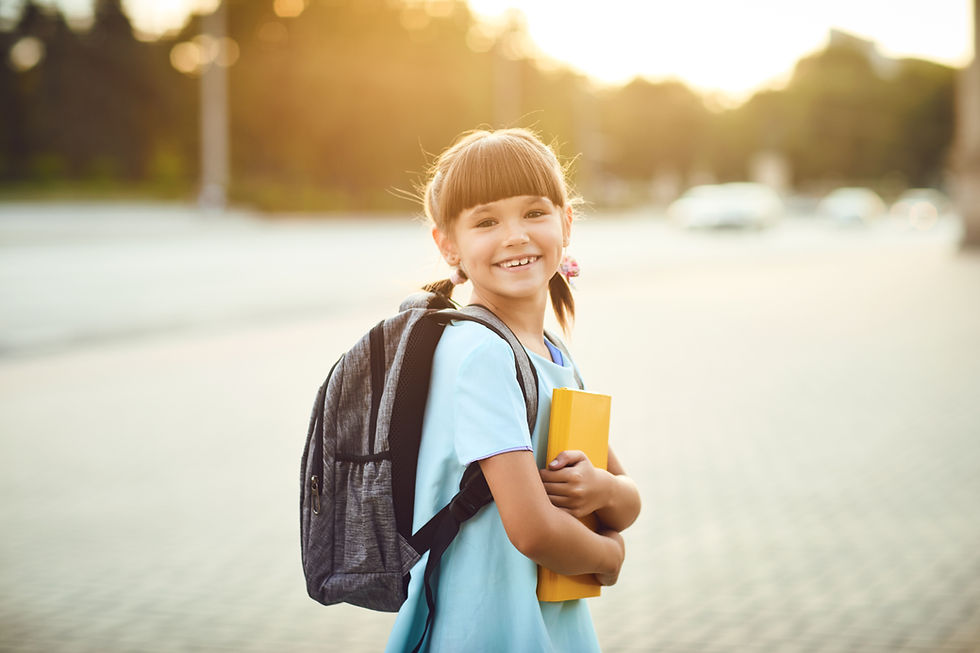Why Free Play and Reading Go Hand-in-Hand for Child Development
- Team picks

- Sep 5, 2024
- 3 min read
Exploring how imaginative play and reading stimulate cognitive growth in children.

Free play and reading are two fundamental pillars in a child's developmental journey. While often seen as distinct activities, there is growing evidence that these activities are deeply interconnected.
When children engage in reading, especially with engaging and age-appropriate books, they not only build literacy skills but also stimulate their imaginations, creating opportunities for open-ended play.
The ability to seamlessly blend reading and play allows children to process the material they encounter and experiment with the ideas, stories, and characters they’ve met in books. This blend of imagination and structure fosters cognitive and emotional growth in ways that are essential to early childhood development.
Advertising
Spark a love for reading with our monthly kids' book box. Learn more
The Importance of Free Play
Free play, which refers to spontaneous, unstructured activity that is initiated by the child, is essential for healthy development. According to pediatric experts at the American Academy of Pediatrics, children who engage in free play are more likely to develop critical thinking skills, improve emotional resilience, and enhance problem-solving abilities.
Research also indicates that play encourages social development, as it often involves communication, negotiation, and role-playing . During these moments, children have the opportunity to explore their inner thoughts and work through real-world issues in a safe and creative space.
How Reading Enhances Free Play
Reading, on the other hand, provides children with a structured introduction to language and ideas. Books open up new worlds, offering children a source of inspiration for their imaginative play. After reading about knights, animals, or fairy tales, for instance, children often use these stories as a basis for their free play.
According to child development specialists at Harvard University’s Center on the Developing Child, this interaction between play and reading promotes stronger memory retention and deeper understanding of complex ideas . In other words, the stories children read can provide a rich framework for their imaginative worlds.
The Role of Imaginative Gifts in Merging Reading and Play
To further solidify this connection, incorporating imaginative gifts into the reading experience can amplify the benefits of both activities.
This is where the Magic Book Box comes in. Curated for a child's specific interests and developmental stage, the Magic Book Box not only delivers carefully selected books but also includes fun gifts that complement the reading experience.
These items—such as character-themed toys, art supplies, or costumes—allow children to extend the world of the book into their playtime, thus reinforcing the material in an active, creative way.
How Play and Reading Foster Emotional Growth
In addition to cognitive benefits, play and reading also have a powerful impact on emotional development. Through the process of reading, children encounter characters who must navigate various emotional landscapes, whether they are overcoming fear, making new friends, or experiencing loss. In play, children can re-enact these emotional situations, enabling them to explore feelings in a controlled environment.
This emotional engagement can reduce stress and anxiety, providing children with a tool to express complex emotions in a healthy way. By intertwining reading and imaginative play, children learn to empathize with others, which strengthens their social skills and emotional intelligence.
The Magic of Blending Books and Play
The connection between free play and reading is undeniable. Both activities are essential for fostering a child's cognitive, social, and emotional growth. Parents who want to enrich these aspects of their child's life can consider subscription boxes like the Magic Book Box, which seamlessly blend reading with imaginative play through carefully curated gifts. In the end, nurturing both play and literacy helps children navigate the world with creativity and critical thinking.




Comments